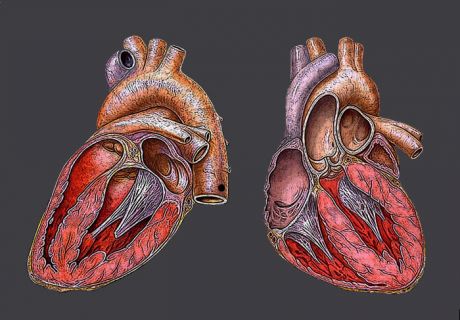
Heart
By Heikenwaelder Hugo, heikenwaelder@aon.at, www.heikenwaelder.at [CC BY-SA 2.5 (http://creativecommons.org/licenses/by-sa/2.5)], via Wikimedia Commons
Endocannabinoid signalling in the nervous system is responsible for various physiological processes including appetite, pain-sensation, mood, and memory. Its name stems from its role in mediating the psychoactive effects of cannabis.
Deregulation of endocannabinoid signalling is associated with various diseases including heart failure. Tissue injury induces increase of endocannabinoids that in turn causes apoptosis and cell death. Inhibition of the cannabinoid CB1 receptor exhibits cardioprotective properties.
MicroRNAs are master regulators at the translational level. It is plausible that changes in the level of bioactive molecules, such as endocannabinoids in the failing heart are associated with specific microRNAs. The EU-funded ENSIG-MIRNA (Endocannabinoid signaling in heart failure: functional relevance of microRNAs) project set out to investigate how tissue injury and endocannabinoid signalling activation alter the cardiac microRNA expression profile and cause heart failure.
Central to the ENSIG-MIRNA work was to identify microRNAs of potential therapeutic relevance for cardiac remodelling after heart failure. Researchers performed microRNA analysis on fibroblasts from myocardial interstitial fibrosis and evaluated their pathogenic role in chronic cardiac remodelling.
Given that microRNA inhibitors are emerging as important therapeutics for the treatment of liver diseases, endocannabinoid-sensitive miRNAs could be exploited for the treatment of chronic cardiac failure.

